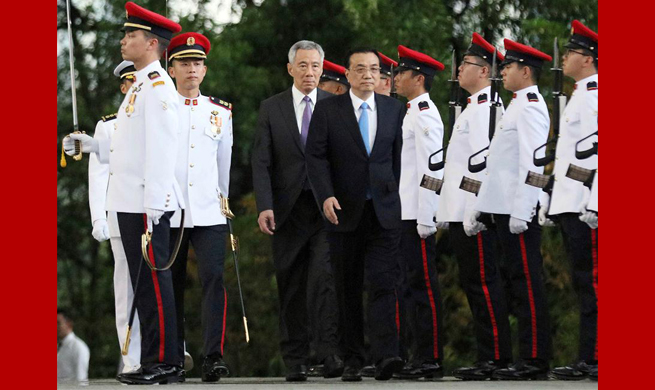NAIROBI, Nov. 13 (Xinhua) -- Kenya in conjunction with the World Bank on Tuesday launched digital reading and writing tools to enhance the participation of the visually impaired population in governance.
Eugene Wamalwa, cabinet secretary for devolution, said that the launch of state-of-the-art assistive devices for people suffering from visual impairment will enable them to contribute to policy formulation and governance at local and national levels.
"Kenya has domesticated global conventions on the rights of disabled persons and today's launch of a Braille containing guidelines to enable the blind to participate in governance and public policy is a significant milestone," Wamalwa remarked.
The ministry with technical assistance from the World Bank developed the Braille version of key policies and legislation that promote good governance, transparency and accountability in all levels of government.
Wamalwa said that harnessing the intellectual wealth of people living with disabilities is key to realizing progress, stability and cohesion in the country.
"People living with all forms of disabilities including the deaf and the blind should be provided with assistive devices to enable them to participate in public forums that seek to promote fiscal discipline and the rule of law," said Wamalwa.
He said the government has prioritized disability inclusive policy formulation and implementation of national development programs.
Multilateral lenders pledged continued support for Kenya's efforts to incorporate the interests of visually impaired persons in the country's transformation agenda.
Paolo Belli, program leader for Africa region at the World Bank Group, said that empowering visually impaired persons through training and access to assistive technologies will boost their contribution to Kenya's socio-economic renewal.
"We must invest in people with all forms of disabilities to ensure they contribute to poverty eradication and strengthening of governance systems," said Belli.
He said the World Bank will rally behind Kenya's efforts to promote lifelong learning among disabled persons.
Kenya has an estimated 331,593 visually impaired persons whose contribution to the country's development has been hampered by high levels of illiteracy, social stigma and unemployment.
Kibaya Laibuta, chairman of Kenya society for the blind, said that the national and county governments should establish a fund to ensure that visually impaired persons have access to assistive devices and training opportunities to make them self-reliant.











